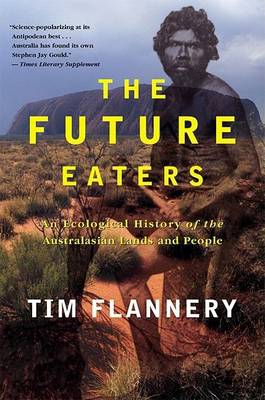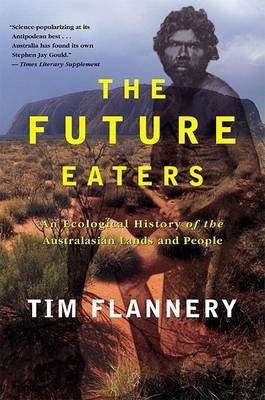
Je cadeautjes zeker op tijd in huis hebben voor de feestdagen? Kom langs in onze winkels en vind het perfecte geschenk!
- Afhalen na 1 uur in een winkel met voorraad
- Gratis thuislevering in België vanaf € 30
- Ruim aanbod met 7 miljoen producten
Je cadeautjes zeker op tijd in huis hebben voor de feestdagen? Kom langs in onze winkels en vind het perfecte geschenk!
- Afhalen na 1 uur in een winkel met voorraad
- Gratis thuislevering in België vanaf € 30
- Ruim aanbod met 7 miljoen producten
Zoeken
The Future Eaters
An Ecological History of the Australasian Lands and People
Tim Flannery
Paperback | Engels
€ 22,45
+ 44 punten
Omschrijving
Humans first settled the islands of Australia, New Zealand, New Caledonia, and New Guinea some sixty millennia ago, and as they had elsewhere across the globe, immediately began altering the environment by hunting and trapping animals and gathering fruits and vegetables. In this illustrated iconoclastic ecological history, acclaimed scientist and historian Tim Flannery follows the environment of the islands through the age of dinosaurs to the age of mammals and the arrival of humanity on its shores, to the coming of European colonizers and the advent of the industrial society that would change nature's balance forever. Penetrating, gripping, and provocative, The Future Eaters is a dramatic narrative history that combines natural history, anthropology, and ecology on an epic scale. "Flannery tells his beautiful story in plain language, science-popularizing at its Antipodean best." -- Times Literary Supplement "Like the present-day incarnation of some early-nineteenth-century explorer-scholar, Tim Flannery refuses to be fenced in." -- Time
Specificaties
Betrokkenen
- Auteur(s):
- Uitgeverij:
Inhoud
- Aantal bladzijden:
- 432
- Taal:
- Engels
Eigenschappen
- Productcode (EAN):
- 9780802139436
- Verschijningsdatum:
- 16/10/2002
- Uitvoering:
- Paperback
- Formaat:
- Trade paperback (VS)
- Afmetingen:
- 153 mm x 228 mm
- Gewicht:
- 625 g

Alleen bij Standaard Boekhandel
+ 44 punten op je klantenkaart van Standaard Boekhandel
Beoordelingen
We publiceren alleen reviews die voldoen aan de voorwaarden voor reviews. Bekijk onze voorwaarden voor reviews.









